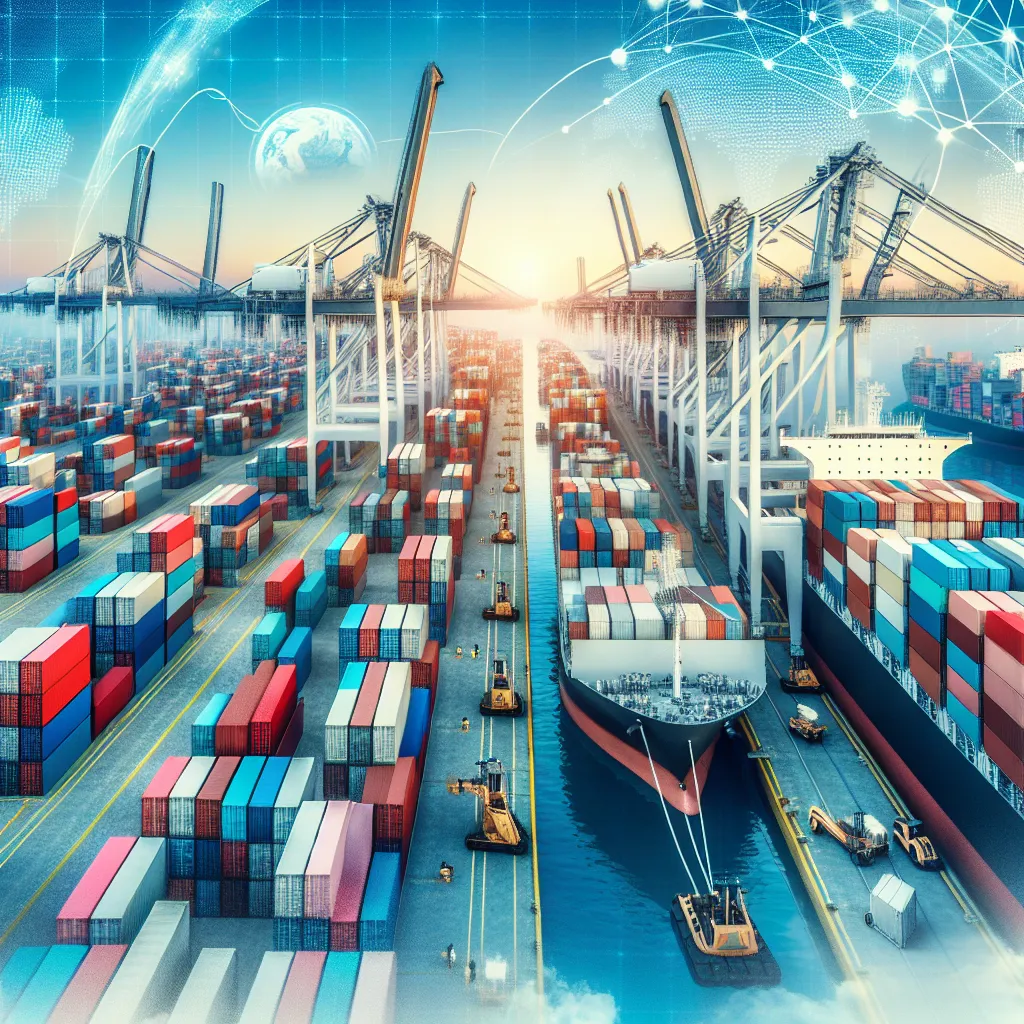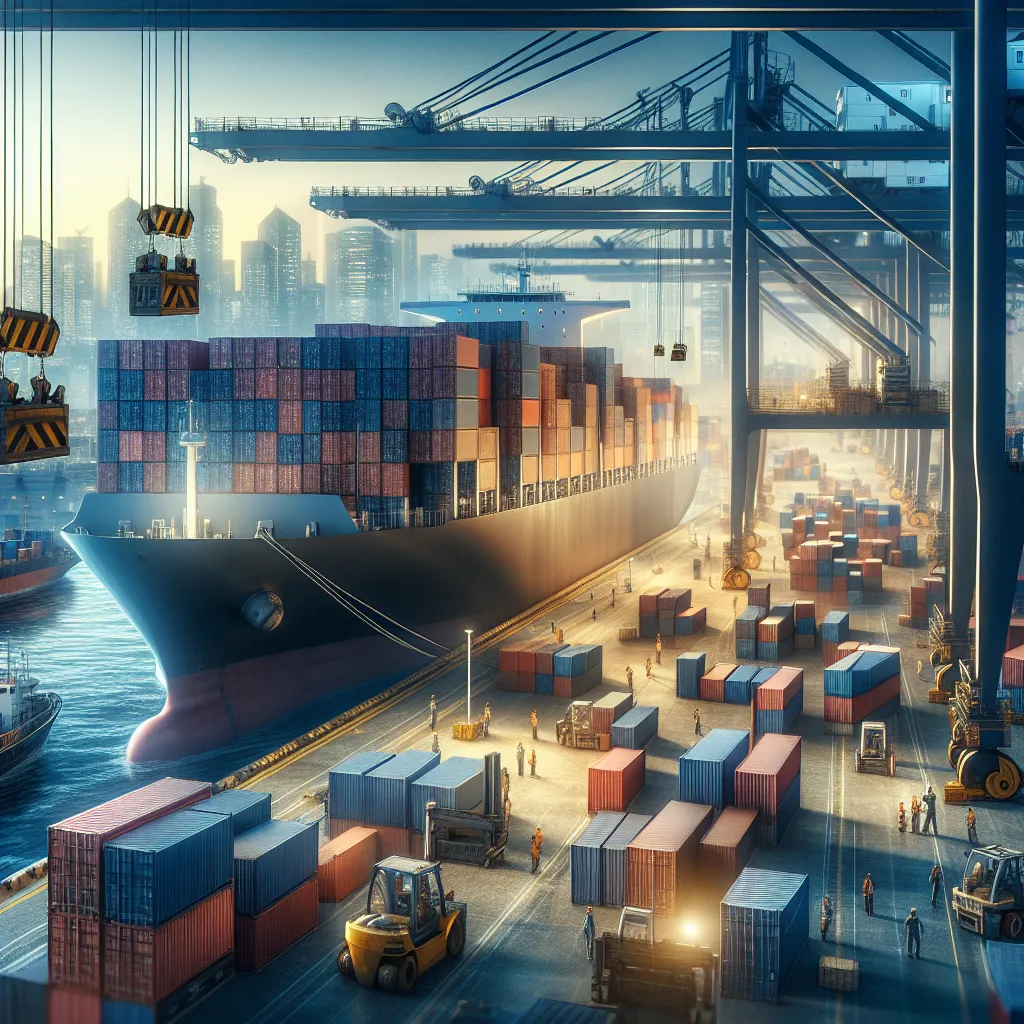The articles highlight the vital role of forwarding agents and freight forwarders in facilitating international trade through their expertise in managing logistics, documentation, customs clearance, and risk mitigation. By acting as intermediaries and leveraging their networks, these professionals ensure efficient and secure transportation of goods across borders while minimizing costs and transit times. Their comprehensive services encompass not only physical transportation but also warehouse management and technological solutions to streamline the entire supply chain process. The articles emphasize how businesses can benefit from partnering with forwarding agents and freight forwarders to expand their global reach, enhance competitiveness, and achieve seamless logistics in the international market.
Category: forwarding
The forwarding category encompasses a range of topics related to the process of redirecting something from one place to another. This can include physical mail forwarding, email forwarding, call forwarding, and package forwarding, among others. In the context of shipping and logistics, forwarding often refers to the transportation of goods from their origin to their destination, involving various carriers and intermediaries. Within the realm of telecommunications, forwarding typically involves the rerouting of communication signals or data to a different endpoint. This category explores the diverse aspects of forwarding, including its importance, methods, challenges, and technological advancements, providing insights for individuals and businesses seeking efficient forwarding solutions.

The Role of Forwarding in Modern Supply Chain Management
The article highlights the crucial role of forwarding services in today’s supply chain management, emphasizing their contribution to the efficient and reliable flow of goods. It stresses the significance of forwarding services in optimizing the supply chain through cost-effective transportation methods and timely deliveries, ultimately enhancing customer satisfaction. The article also underscores the instrumental role of forwarding services in managing international trade complexities, customs regulations, and supporting Just-In-Time inventory management. Additionally, it offers insights into strategies for successful forwarding in the modern supply chain, including the implementation of advanced technology, fostering strong partnerships, and embracing sustainable practices. The comprehensive coverage of the article makes it an essential read for professionals seeking a deeper understanding of the pivotal role of forwarding services in modern supply chain management.

The Impact of Forwarding on Global Supply Chains
The article delves into the transformative impact of forwarding services on global supply chains, emphasizing their role in driving efficiency, integration, and digitalization within logistics and shipping. It highlights how forwarding companies optimize transportation routes, facilitate multimodal transportation integration, and drive digital transformation to enhance visibility and transparency in supply chain operations. The article underscores the pivotal role of forwarding services in reshaping global supply chains and emphasizes their potential to further optimize the movement of goods across the world. Readers will gain insights into how forwarding plays a crucial role in streamlining the movement of goods, reducing transit times, minimizing environmental impact, and ensuring compliance with import/export regulations, highlighting the value of forwarders in enhancing the overall efficiency of global supply chains.

The Future of Digitalization in Freight Forwarding
The articles explore the transformative impact of blockchain technology, automation, and artificial intelligence, as well as sustainability efforts in the freight forwarding industry. Blockchain has revolutionized supply chain operations by enhancing security, transparency, and efficiency, while automation and artificial intelligence are poised to bring unprecedented productivity and proactive problem-solving. The industry’s increasing digitalization underscores the importance of sustainability and eco-friendly solutions, as companies strive to incorporate these principles in their operational processes. The articles paint a compelling picture of how these technological advancements are reshaping the future of freight forwarding, making it a must-read for anyone interested in the industry’s evolution.

Key Challenges in Freight Forwarding Operations
The article provides a comprehensive overview of the impact of increasing global trade and complex supply chains on freight forwarding operations. It highlights the challenges faced by freight forwarders, such as managing diverse routes, navigating through variations in customs regulations, and dealing with the dynamic nature of global trade agreements and geopolitical factors. The need for technological innovation, strategic partnerships, and a deep understanding of the intricate global trade landscape is emphasized as essential for addressing these challenges. Furthermore, the role of technology integration and automation in addressing operational challenges in freight forwarding is explored, focusing on the improved efficiency, accuracy, real-time tracking, and compliance standards. The article concludes by emphasizing the necessity of adapting to these challenges through a combination of technology, strategic partnerships, and understanding the modern supply chain landscape. Readers are encouraged to dive into the full article to gain a deeper understanding of the strategies and solutions available for navigating the complexities of global trade and supply chains in the freight forwarding industry.

